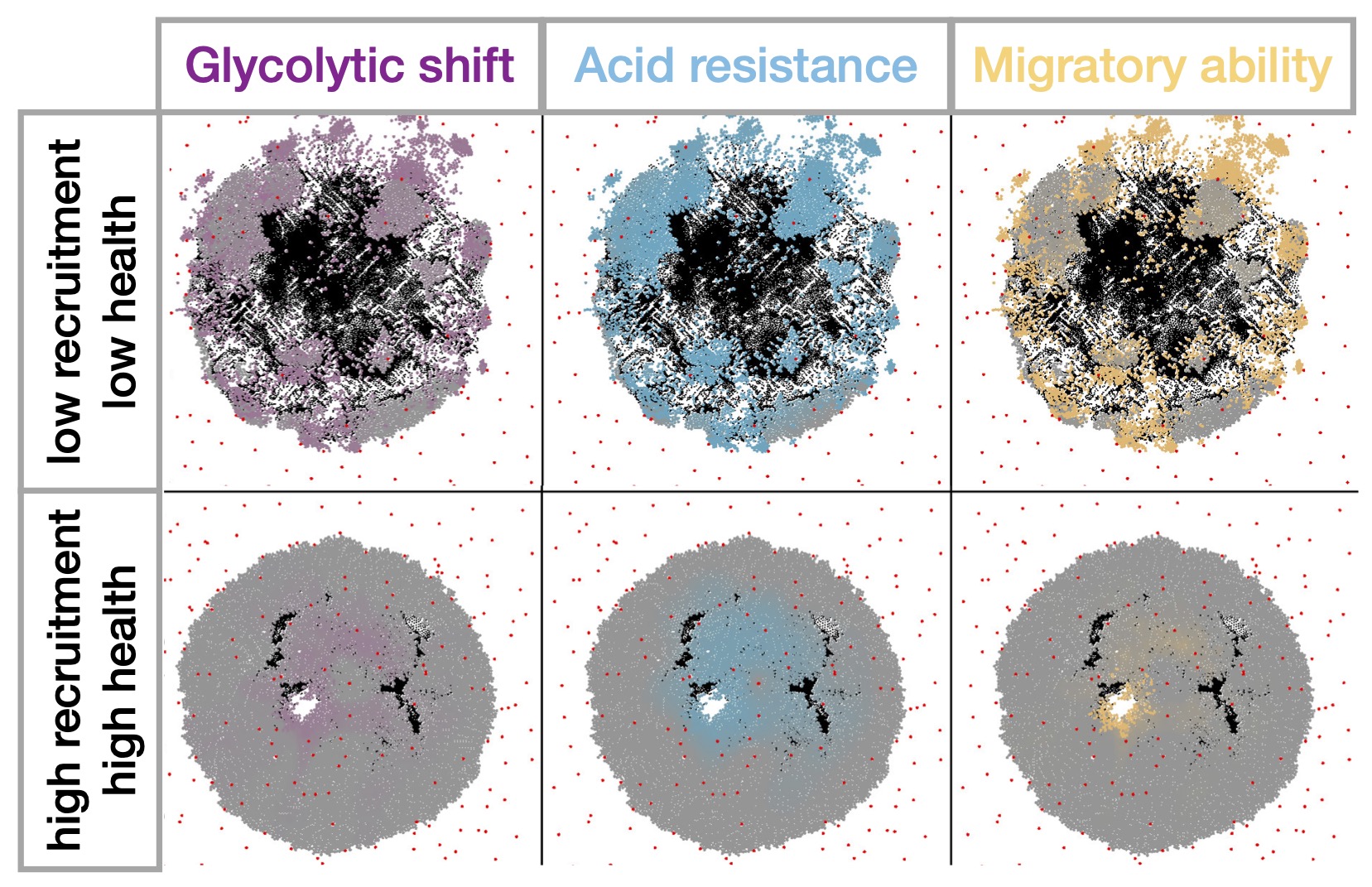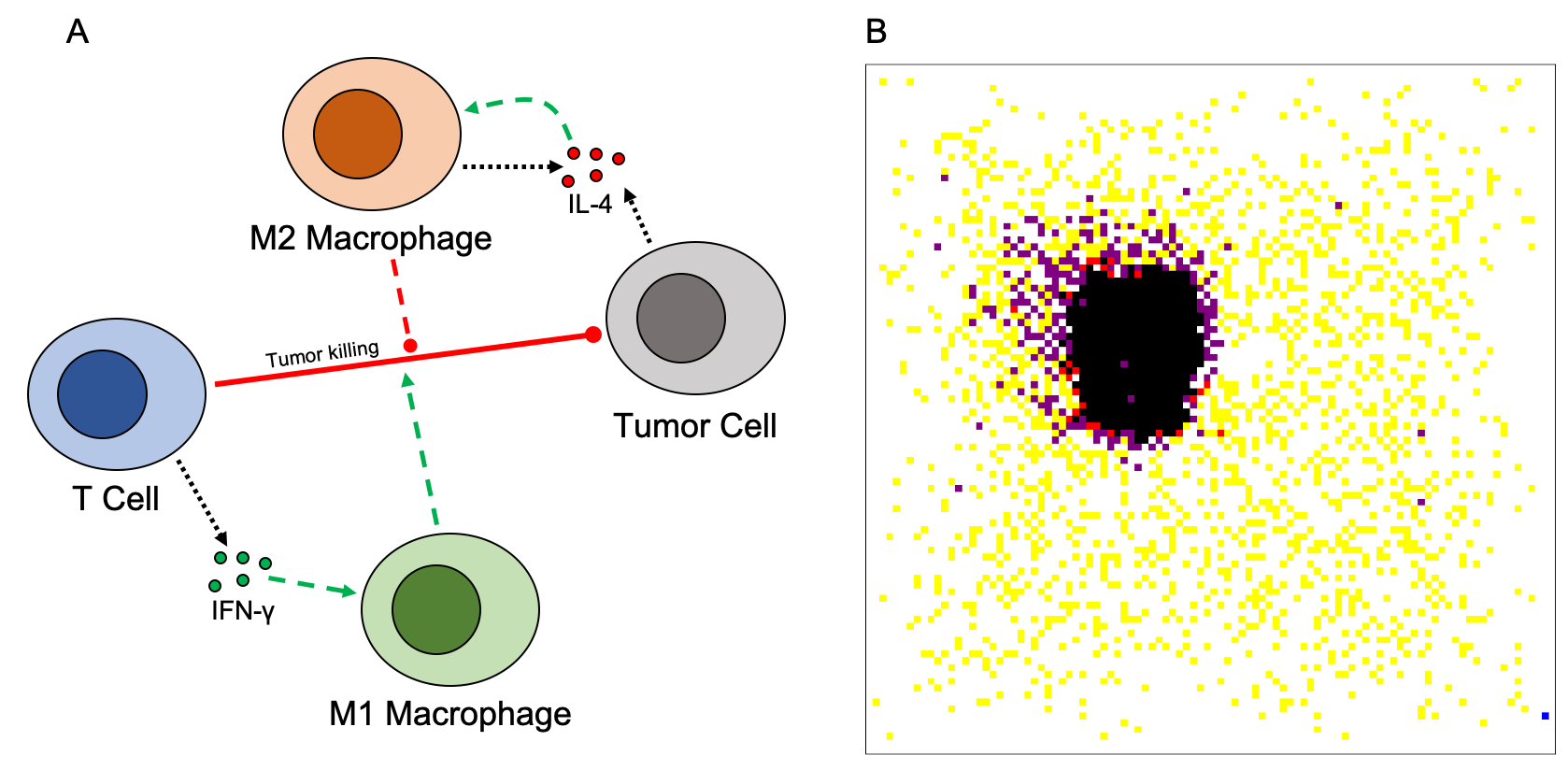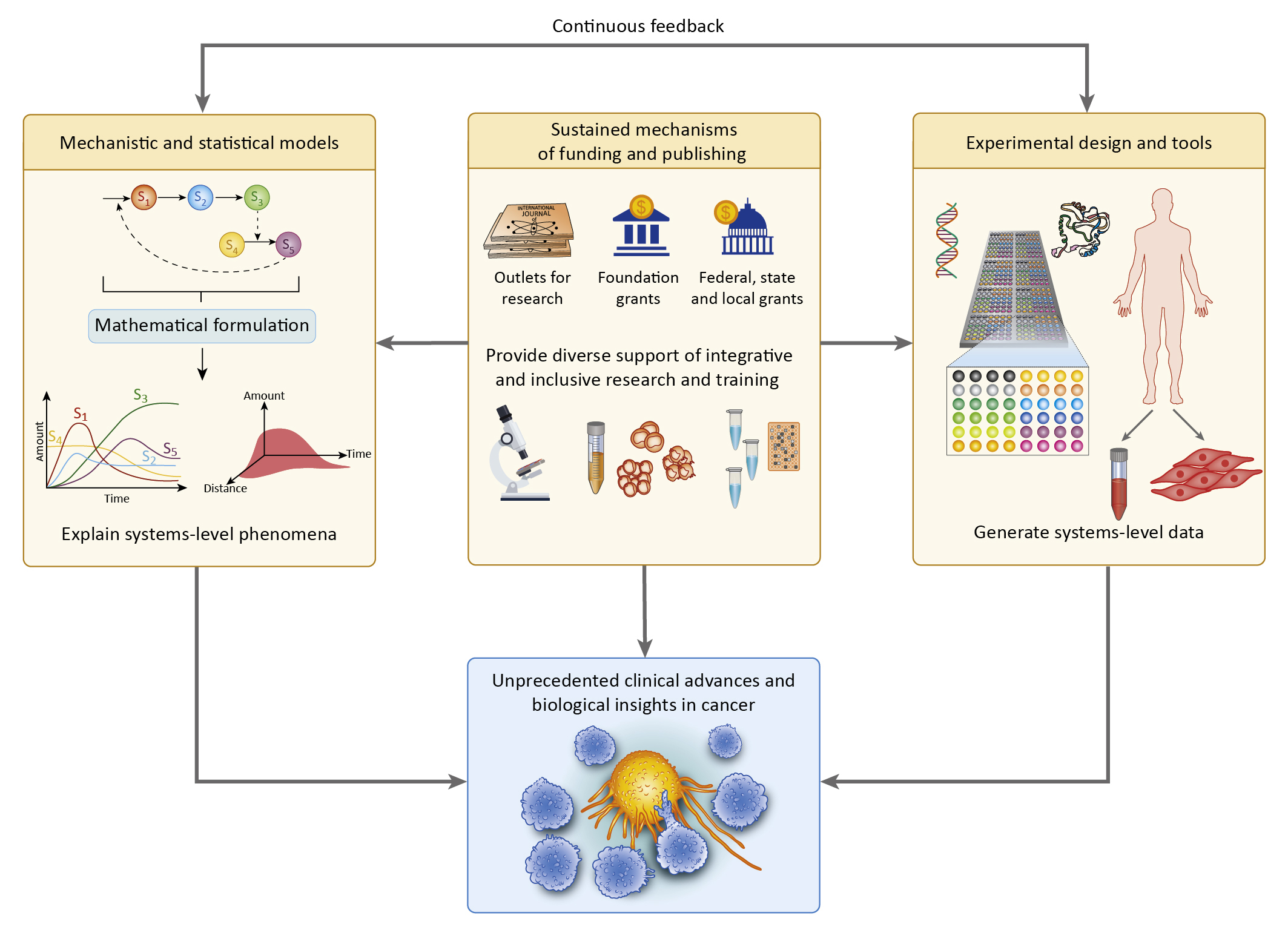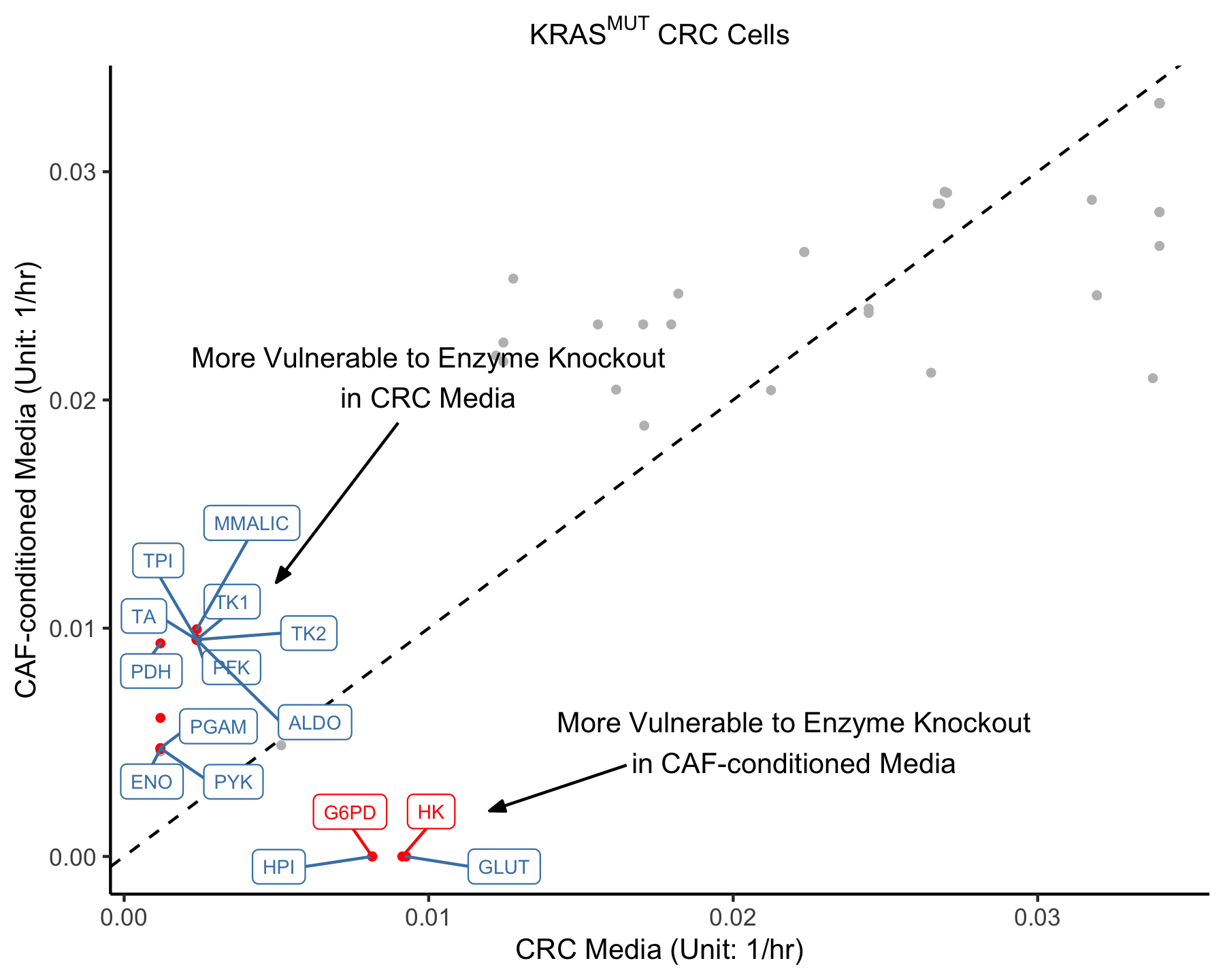recent publications

Agent-based model of tumor cell evolution
This work reports a novel model to examine how hypoxic and acidic conditions following anti-angiogenic therapy can influence tumor development. We find that anti-angiogenic therapy promotes tumor invasion by exposing the tumor to a harsher microenvironment that forces the cancer cells to adapt in order to survive.

Multiscale model of macrophage-based treatment
This paper present a novel agent-based model consisting of the interactions between macrophages, T cells, and tumor cells to determine how the immune response changes due to macrophage-based immunotherapeutic strategies. We also employ a novel method of using a neural network to reduce the computational complexity of an intracellular signaling mechanistic model.

Integrative approaches to cancer immunotherapy
This perspective presents a case for how to answer outstanding questions related to cancer immunotherapy. An integrative approach is needed: applying mechanistic and statistical modeling, establishing consistent and widely adopted experimental tools to generate systems-level data, and creating sustained mechanisms of support.

Tumor-stromal metabolic crosstalk in colorectal cancer
This paper uses a data-driven approach to investigate the metabolic interactions between CRC cells and CAFs, integrating constraint-based modeling and metabolomic profiling. We find that CAFs reprogram CRC metabolism through stimulation of glycolysis, the oxidative arm of the pentose phosphate pathway (PPP), and glutaminolysis as well as inhibition of the tricarboxylic acid cycle. We apply the model to simulate enzyme knockouts that can be used as CRC-targeted therapy.